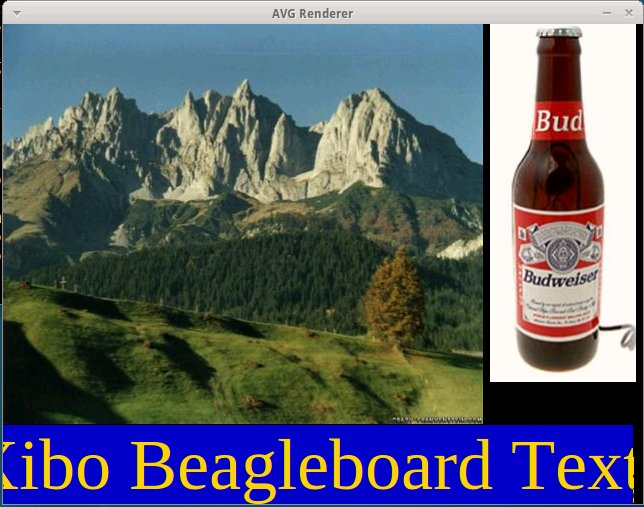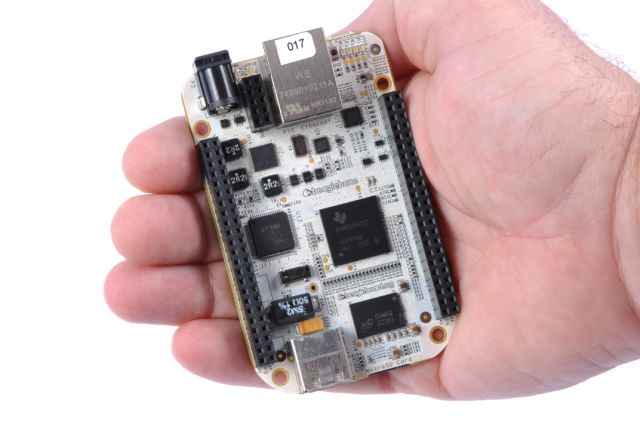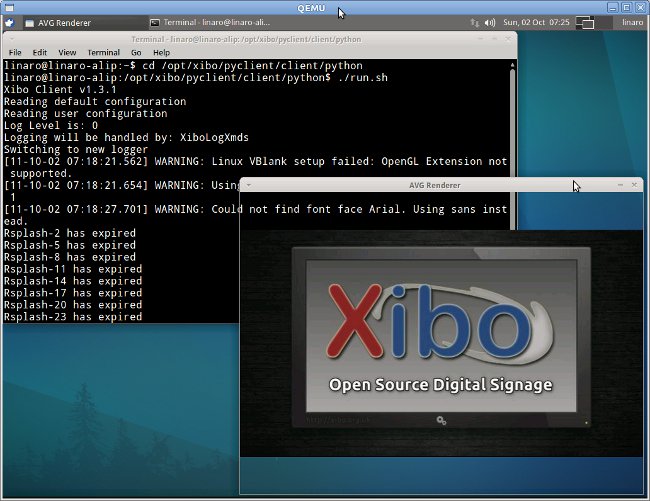Zach Pfeffer, Linaro Android Platform team leader, describes Linaro’s work on the Android platform and future plans at Embedded Linux Conference Europe 2011. Abstract: Linaro uses components from the Android Open Source Project, member companies, community supported efforts and Linaro engineering teams to build integrated, easy-to-use and well tested Android platforms for upstream work, product baselines and hobby projects. The team currently has platforms for TIs PandaBoard, BeagleBoard and Beagle xM, ST Ericsson’s Snowball, Samsung’s Origen and Freescale’s iMX53. They recently released platforms with Android 2.3.4 built against GCC 4.6 and running the 3.0 Linux kernel. In this session Zach reviews what’s been done, the Linaro Android concept, how Linaro brings Android together and what their plans are. Jean-Luc Aufranc (CNXSoft)Jean-Luc started CNX Software in 2010 as a part-time endeavor, before quitting his job as a software engineering manager, and starting to write daily news, and reviews full time later […]
Linaro 11.10 Release with Linux Kernel 3.1
Linaro has just released version 11.10 based on Linux Kernel 3.1. Here are the highlights of the release: Android Audio playback and recording works on LEB-panda. TJBench into all Android builds benchmarked against the original Android libjpeg implementation: TomGall/LibJpegTurbo All strict-aliasing violations in 2.3.5 have been fixed and sent to AOSP. (for build optimization) Linaro Gerrit is integrated with Android Build Service for change verification as part of Continuous Integration effort. Tip toolchain tracked and released against all targets for 11.10. iMX53 will now boot with a 3.0 or later Android Kernel. The multimedia test application has been extended to cover encoding and give better benchmark results. Linaro’s Android distribution can now base builds off a tip toolchain build. Linaro’s 11.09 toolchain has been benchmarked. USB camera (UVC) now works on linaro-android builds. Developer Platform The Linux Linaro packages are now generated and validated in a continuous integration loop. New […]
Xibo Digital Signage on ARM (Full Version)
Last month, I wrote a post showing how to run Xibo Open Source Digital Signage in a BeagleBoard/Overo emulator. That version could communicate with Xibo server, download the required files, display pictures and (maybe) play videos with the real hardware. However, it had serious limitation as Text, RSS and web pages could not be displayed. I’ve now fixed those issues and the full Xibo 1.3.1 can run on ARM platform. First, you need to follow the instructions given in Xibo Digital Signage on ARM (Beagleboard / Overo), although we’ll need to modify something with libavg compilation (see below). Then cross-compile berkelium for ARM using Linaro toolchain. Add libbrowser-node to libavg plugin directory and build libavg again. Also copy the Berkelium header files in to src/test/plugin (i.e. src/test/plugin/berkelium) or add the include file path to CFLAGS/CXXFLAGS.
|
1 2 3 4 5 |
bzr branch lp:~browsernode-team/+junk/berkelium-browsernode cp berkelium-browsernode/plugin/* ~/edev/beagleboard/libavg-1.6.0/src/test/plugin cd ~/edev/beagleboard/libavg-1.6.0 make make install |
Create libberkeliumwrapper.so:
|
1 2 3 4 |
cd ~/edev/beagleboard/libs/lib touch a.cpp arm-linux-gnueabi-g++ -c a.cpp -o a.o arm-linux-gnueabi-g++ a.o -shared -L/home/jaufranc/edev/beagleboard/berkelium -llibberkelium -o libberkeliumwrapper.so |
Copy the required files to the qemu image: sudo mount -o […]
BeagleBone: New 89 USD Beagleboard
The BeagleBone is a low-cost, high-expansion hardware-hacker focused BeagleBoard. It is a bare-bones BeagleBoard that acts as a USB or Ethernet connected expansion companion for your current BeagleBoard and BeagleBoard-xM or works stand-alone. The BeagleBone is smaller than the previous version of BeagleBoards (looks like the business of a credit card) and features TI Sitara™ AM3358 Cortex A8 processor clocked at 700Mhz. The BeagleBone is also able to run a full-featured Linux. Here are the current hardware specifications: TI AM3358 ARM Cortex-A8 @ 700 MHz 256 MB DDR2 RAM Board size: 3.4″ x 2.1″ Shipped with 2GB microSD card with the Angstrom Distribution with node.js and Cloud9 IDE Single cable development environment with built-in FTDI-based serial/JTAG and on-board hub to give the same cable simultaneous access to a USB device port on the target processor Industry standard 3.3V I/Os on the expansion headers with easy-to-use 0.1″ spacing On-chip Ethernet, not […]
Yocto Project Release 1.1 Announced
The Linux foundation announced Yocto Project Release 1.1 today. This release codenamed “Edison” and based on Poky 6.0 is the the second release of the project, one year after it was announced in October 2010 to provide developers with greater consistency in the software and tools they’re using across multiple architectures for embedded Linux development. The Yocto Project reached the following milestones during the last year: Alignment of OpenEmbedded technology and the inclusion of OpenEmbedded representation in the Yocto Project governance structure. The projects share a common core that consists of software build recipes and core Linux components that prevent fragmentation and reinforce the OpenEmbedded methodology as an open standard for embedded Linux build systems. Contribution of tools and technologies such as Cross-prelink, EGLIBC, Pseudo, Shoeleather Lab (for automated testing) and Swabber have been contributed from Intel, Mentor Graphics, MontaVista Software and Wind River. Commercial adoption with examples such as […]
Cross-compiling Berkelium (and Chromium) for ARM
Berkelium is a BSD licensed library that provides off-screen browser rendering via Google’s open source Chromium web browser. It takes advantage of Chromium’s multiprocess rendering to isolate browsers from each other and can render to any buffer in memory. The user of the library can inject input and javascript code into web pages to control them, as well as listen for events generated by the page such as navigation events, load sequence events and paint events. Berkelium provides a small API for embedding a fully functional browser into any application. This library is used by Xibo Digital Signage Player python client. I’ll give the instructions I followed to build Berkelium and Chromium for ARM. For now the build works, but I have a problem running berkelium in the emulator. First, you’ll need to install some tools and the development version of some libraries: sudo apt-get install git-core subversion cmake doxygen […]
Generate a Custom ARM Rootfs Easily with Rootstock
You may need to generate your own rootfs for your ARM target board, but do not want to cross-compile all libraries manually. You can achieve this with rootstock, a utility that generates Ubuntu armel rootfs tarballs and/or qemu image, to be uncompressed onto a root device. First install roostock: sudo apt-get install rootstock Then generate a rootfs with the required libraries: sudo rootstock –fqdn beagleboard –login cnxsoft –password temppasswd \ –imagesize 3G –seed xfce4,gdm,pkg-config,python,perl,g++,bison,flex,\ gperf,libnss3-dev,libgtk2.0-dev,libnspr4-0d,libasound2-dev,libnspr4-dev,\ libgconf2-dev,libcairo2-dev,libdbus-1-dev,libstdc++6-4.5-dev,libexpat1-dev,\ libxslt1-dev,libxml2-dev,libbz2-dev –dist natty Here are the details of the command line parameters: –fqdn: Hostname to be used for the target system –login: Login ID of the admin user created during setup –password: Password of the admin user created during setup –imagesize: Size of the target filesystem to be created (default 1GB) –seed: List of packages to install –dist: Specify Release to build (jaunty, karmic, lucid, maverick or natty) Alternatively you could also use an […]
Xibo Digital Signage on ARM (Beagleboard / Overo)
Xibo (pronounced eX-E-bO) is an open source, multi-display, multi-zone, fully scheduled digital signage solution written in Python (there is also a dotnet version). This is a client /server solution that can run on Windows or Linux. If you are not familiar with Xibo you can visit http://xibo.org.uk/ or/and read my introduction XIBO: An Open Source Digital Signage Server/Client. Since I had not seen digital signage solution running on low cost ARM development platform such as Beagleboard, Pandaboard or Origen, I decided to give the Xibo python client a try using qemu to emulate Gumstix Overo COM (OMAP 3530). Porting Xibo to ARM could provide several benefits compared to x86 platform: Lower hardware cost Lower power consumption (and electricity bill) Smaller form factor allowing easier integration in displays and in transportation (e.g. buses, subway trains). Easier to implement new digital signage features such as touch screen support, 3G connectivity, location based […]







